Nominees
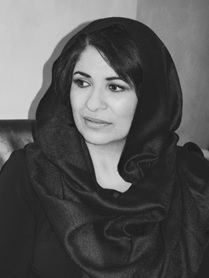 Abda Khan is a British lawyer and recently published her first novel Stained. Described by Booklist as a “contemporary Tess of the d’Urbervilles”, the story revolves around an 18 year old British Pakistani girl who is raped, and the lengths she goes to in order to preserve the family “honour”. This leads her down a dark and dangerous path from which there may be no return.
Abda Khan is a British lawyer and recently published her first novel Stained. Described by Booklist as a “contemporary Tess of the d’Urbervilles”, the story revolves around an 18 year old British Pakistani girl who is raped, and the lengths she goes to in order to preserve the family “honour”. This leads her down a dark and dangerous path from which there may be no return.
Abda was inspired to write Stained by issues she encountered in her legal work, which lack representation in the literary world. She says ‘rarely have any of the women that I have come across, who have been raped or suffered “honour” violence, ever reported it to the police. Many have never told anyone else. Others have told their family and have been made to feel like they are at fault. The main reason they keep quiet is because they are made to feel that if people find out, will tarnish the family honour. They perceive that there is a total lack of support for them. I feel strongly that we need to spread the word that there is support out there, at least outside of the family and community.
Following the publication Stained, Abda has done much to raise awareness about the help that is available for victims and Survivors of “honour” based violence in media interviews, book launches, literary festivals, schools, universities and charity functions in Birmingham, Leicester, Yorkshire and New York, Los Angeles and San Francisco.
Abda also writes short stories and guest writes for several publications, raising the profile of “honour” crimes. Her short story ‘The Lonely Path’ and poem ‘Forced’ were published by sister-hood.com and have been featured by AHA Foundation.
Abda also volunteers for Birmingham & Solihull Women’s Aid and in particular helps “honour” related and forced marriage cases.
 Dr Christina Julios is an Associate Lecturer and author at Birkbeck, University of London. The landmark case involving the “honour” killing of Banaz Mahmod in 2006, marked the beginning of her academic research into “honour” based violence.
Dr Christina Julios is an Associate Lecturer and author at Birkbeck, University of London. The landmark case involving the “honour” killing of Banaz Mahmod in 2006, marked the beginning of her academic research into “honour” based violence.
In 2015, Dr Julios published Forced Marriage and ‘Honour’ Killings in Britain: Private Lives, Community Crimes and Public Policy Perspectives the first scholarly book of its kind, examining the extent of “honour” based violence in the UK. This unique book chronicles contemporary public policy and legislative documents, as well as featuring narratives of survivors of “honour” crimes, with five key detailed case studies.
In 2016 Dr Julios established and taught the first ever educational course to focus on the UK’s approach towards “honour” based violence, at the City Literary Institute. She has also presented her research at various national academic conferences including; the UN Women National Committee, the British Sociological Association Annual Conference, and the BSA Violence Against Women Study Group.
Dr Julios has taken part in television interviews including Sky News’ discussion of HMIC’s ‘Depths of Dishonour Report’ as well as a Peninsula Television documentary on “Honour” based violence survivors titled, ‘The Day I Should Have Died’.
Dr Julios is currently writing her next book on the topic of FGM, in order to shed light on the various under-researched aspects of this “honour” crime. Dr Christina Julios is determined to continue making a positive contribution in the fight against “honour” based violence, so that no woman has to endure what Banaz did.
Baroness Elizabeth Butler-Sloss
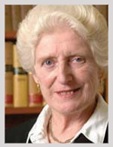
Baroness Butler-Sloss is a retired English judge who has had an exemplary legal career. She was the first female Lord Justice of Appeal and, until 2004, was the highest-ranking female judge in the United Kingdom.
On 3 May 2006, it was announced by the House of Lords Appointments Commission that she would be one of seven new life peers – so-called ‘people’s peers. On 13 June 2006, she became Baroness Butler-Sloss of Marsh Green in the County of Devon, sitting as a crossbencher.
Baroness Butler-Sloss plays a prominent role in the Lords on most child welfare and family legislation. In 2010 she established the Human Trafficking Foundation and is currently it’s Vice-Chair as well as Co-Chair of the All-Party Parliamentary Group on Human Trafficking and Modern Slavery. In 2014, at the request of the then Home Secretary, Theresa May, Baroness Butler-Sloss was appointed as a Member of the Joint Select Committee on the Draft Modern Slavery Bill and played a pivotal role in advising the Government, shaping the Bill and ensuring it became law in 2015. The Act was the first of its kind and has since been described as a world-leading piece of legislation: imposing strict penalties for perpetrators of human trafficking and encouraging preventative measures to tackle exploitation.
Baroness Butler-Sloss sits on the Advisory Panel of the UK’s first Independent Anti-Slavery Commissioner. She regularly consults with legislatures in the UK and overseas, police forces, judges, law firms and charities to resolve issues and ensure the widest protection possible to current and potential victims of human traffickers.
For the past three years Baroness Butler-Sloss has worked tirelessly steering the Forced Marriage Commission. Members of the Commission admire her ‘grit and tenacity’.
Deeply impacted by a screening of the documentary Banaz: A love story, at the Global Summit to End Violence in Conflict in 2014, Giants Theatre Company decided to develop a new play called Piece of Silk tackling violence against women and girls, with a particular focus on “honour” based violence. The title is taken from the documentary, where a policeman explains the concept of female “honour” by comparing a woman to a piece of silk, which once “stained” cannot be cleaned, and must therefore be eradicated.
In developing Piece of Silk, Giants ran a creative workshop with IKWRO’s clients to listen to their views, experiences and feelings, partnering with Survivors of “honour” based violence to help influence change. Giants also worked closely with IKWRO’s advice team, counsellors and Campaign Officer, as well as other rights organisations including Southall Black Sisters and the Not Shut Up Collective.
Piece of Silk focuses on two sisters, Shaz, 19 and Dunya, 17, who have never met their older brother, until he comes from overseas to keep an eye on them whilst their mother is away. Using mediums such as spoken word, poetry and lyrical myth, and drawing Survivors’ contributions, Piece of Silk illustrates how the power of storytelling can be the difference between life and death.
Despite challenges in securing funding, the play had a successful run at the Hope Theatre in London. It’s been described by critics as ‘relevant, harrowingly and horrifyingly relatable’ and ‘a powerful and essential piece of theatre.’ Through theatre, Giants are forcing people to either rethink, or think about “honour” based violence for the first time. Crucially, by listening carefully to those affected and amplifying survivor’s own views.
Kameel Ahmady

Kameel Ahmady is a British Kurdish Iranian cultural anthropologist, researcher and writer, who has worked extensively on issues relating to local cultures, minority rights and Middle Eastern affairs. He has travelled widely, studying the everyday human experience of people facing conflict and poverty in Africa, Eastern Europe, Bosnia, Afghanistan, pre and post-war Iraq, and Iran.
His work includes a comprehensive study on “Early Child Marriage In Iran”, (), which was launched in Tehran’s national library and Female Genital Mutilation/Cutting in Iran, which was ten years in the making. Kameel presented this work, along with a short anthropological film, the first ever on FGM in Iran, at the University of Oxford.
In both of these long-term projects, Kameel explores “honour” based violence, rooted in social and traditional norms. He has played an instrumental role in documenting and exposing harmful practices in areas of the world where it is difficult to collate such information. His work has directly contributed to the slow process to end these harmful practices in some of the most rural areas in the Middle East. Kameel has also worked as an independent consultant in Europe, as well as a Middle East media correspondent, and has provided consultation within cultural and political contexts to a variety of international groups.
Kameel’s main concern and interest lies with female and child empowerment. He is determined to use his knowledge and research to address and improve their human rights.
Kalbir Bains

Kalbir Bains is the author of the soon to be released novel titled, Not Our Daughter: The True Story of a Daughter in Law. The book is based on her and her mother’s real life experiences of dealing with the trials and tribulations of having an arranged marriage, through to becoming a divorcee in the Punjabi community.
In the book, Kalbir openly discusses the issues surrounding “honour” based violence, the differences between forced and arranged marriages, dowry, abortion and gender equality, in a community which typically chooses to remain silent on many of these important topics. Kalbir hopes that by writing in such a candid and open manner about the hardships she has faced, she can inspire more women to speak out on sensitive topics and be more open about situations, on which they have traditionally been taught to keep quiet. She is also passionate to demonstrate that there can be positive outcomes to these difficult situations.
Kalbir is an Ambassador of Your Saheli, a women’s organisation which aims to provide a support network to strengthen and empower young women. Not Our Daughter: The True Story of a Daughter in Law will be available from 1st October 2017 on Amazon, along with a short film. Kalbir Bains hopes that her writing will empower and inspire other people, and create a positive ripple effect in the lives of others.
Lucky Begum

As the Forced Marriage and “Honour” Based Violence Coordinator at Luton All Women’s Centre since 2009, Lucky Begum’s tenacious approach and persistence have meant that she has supported over 300 individual women escape abusive situations, or cope with the aftermath of a forced marriage. Lucky has played a key role in developing a seamless service for victims and Survivors of forced marriage and “honour” based violence, by ensuring safety measures and strategies are in place to help reduce the risk of harm and a high level of support to individuals.
Lucky works closely with voluntary and statutory agencies. She utilises her expertise to deliver professional training, including through the Luton Safeguarding Children’s Board, as well as to teachers and hospital safeguarding teams. Lucky also works in partnership with SEPT, delivering training on forced marriage to mental health professionals and she delivers workshops to young people in local schools and colleges, raising awareness as a means of prevention.
Most recently, Lucky has organised two highly successful conferences engaging both professionals and community members. She is now working to bring about change within the community including mosques and faith groups to break taboos and enable these issues to be spoken about freely.
Despite an increasingly heavy workload, she has remained passionate and is always looking for ways to expand her work programme to reach into hidden areas of the community to bring about change.
Nin Jhal
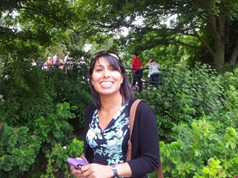
Nin Jhal is a survivor of forced marriage, who uses her platform as a serving police officer to speak about her experiences, in order to educate others. When Nin was in her 20s, she accompanied her family on a holiday to India, where she was informed that she would be getting married. She was kept in a house as a prisoner, hidden away from other people, until the police in the UK contacted Punjabi police about her whereabouts, who then managed to locate her.
Nin draws on her traumatic experience as a force for good to inform young people and other victims, by retelling her story and using it to show them that “honour” abuse can happen to anyone. Nin was filmed by the Prince’s Trust in 2008, speaking about her experience of “honour” abuse. This was made into a DVD which has been used to train over 1500 practitioners, and has also been screened at conferences.
Nin is a committed and dedicated Survivor who uses her voice to show solidarity for the cause. Within her work with the police, she often educates her colleagues about “honour” abuse and shares her story with them to offer them a unique perspective.
Nusrat Zamir

Nusrat Zamir is the founder of Chadwell Heath Asian Women’s Network (CHAWN), a grassroots community organisation established in 2014, which works to educate the local community about “honour” based violence and to empower local Asian women by creating a safe space where they can discuss their experiences and learn from each other.
As a survivor herself, Nusrat uses her voice to raise awareness, particularly about the distinction between domestic violence and “honour” based crimes. Nusrat runs weekly coffee mornings, monthly workshops and takes part in other borough initiatives. She is also launching a newsletter, which will highlight “honour” based violence, amongst other women’s rights issues.
As a British Council Active Citizen, Nusrat managed a social action project for International Women’s Day 2016, showcasing the strengths and achievements of women Survivors of FGM and “honour” based violence, to raise awareness and act as a source of inspiration. Nusrat also delivered a women’s empowerment roadshow attended by over 100 people, which was a huge success.
The London Borough of Barking and Dagenham recognised Nusrat’s work within the community by awarding her with the Women’s Empowerment Award of ‘Woman of Courage’ in 2016.
Nusrat is currently researching “honour” based violence and “honour” killings as the topic of her Master’s thesis and continues to have a huge impact in tackling “honour” based violence and empowering women and the community.
Scott Cowie

Scott Cowie is a serving police officer working in the Cleveland Police Force, who uses every opportunity to raise awareness and educate his colleagues on the issues of “honour” based violence and forced marriage.
In the last two and a half years, Scott has delivered training to over 400 frontline police officers, control room staff and call handlers within Cleveland Police, and continues to deliver training to all new student officers. With the help of a survivor, Scott wrote and developed a training package that would ensure that officers and staff are able to see “honour” based abuse and forced marriage from the point of view of the victim.
The training has been extremely successful and effective and it has meant that officers are well-equipped to identify and respond correctly to all incidents of “honour” based abuse and forced marriage. An aide memoir “do’s and don’ts” checklist has been developed directly from the training, which can be accessed by every officer dealing with “honour” based abuse and forced marriage.
It is not part of Scott’s job description to provide this training, on which he spends a great deal of his time; what drives Scott is his passion for equality and his commitment to saving lives from “honour” based violence.
Shakilla Ahmed

Shakilla Ahmed is a Survivor of forced marriage and “honour” based abuse, who speaks out to help ensure others are protected. She is a member of the Survivor Ambassador Panel for Karma Nirvana; a charitable organisation which works to support victims of “honour” based violence and forced marriage. Shakilla has shown great bravery in speaking out about her experiences, first anonymously and with other Survivors. She now speaks openly at events nationwide, at police training and in the media. She uses every opportunity to find her voice and become increasingly vocal. By passionately sharing her testimony as a Survivor, Shakilla moves and inspires audiences and influences future generations. Shakilla’s bravery impacted thousands of people last year when she was featured in the Channel 4 documentary ‘Forced Marriage Cops’.
Shakilla’s is inspiring to all of the women she works with. She is particularly admired for taking out Forced Marriage Protection Orders against her own family, in order to protect her children. Shakilla has not had an easy journey, but this has not deterred her in her fight against adversity. With determination she is using her voice to break the silence which so often surrounds the victims of “honour” based crimes.
Dr Shruti Kapoor
As a passionate gender equality activist, Dr Shruti Kapoor has dedicated herself to ensuring that women and girls globally, feel safe and have a voice against violence. Dr Kapoor is the founder of Sayfty https://sayfty.com/, an organisation that educates and empowers women and girls against all forms of violence including “honour” based violence.
Dr Kapoor and the team at Sayfty organise educational workshops and campaigns that raise awareness, as well as creating safe spaces for open dialogue through their educational initiatives and social media. They hold dynamic forums where thousands of voices can converge, share information, challenge beliefs and propose solutions.
Dr Kapoor’s work has been widely recognised. In 2016, The White House nominated her as a ‘changemaker’ for The United State of Women Summit. In 2015, she was awarded the Rex Karamveer fellowship and third prize in the “Woman of the Year” by the Regional Council, Aosta Valley in Italy, as well as the People’s Choice Award by Femvertising and an award from the UP Government in India. Dr. Kapoor holds a PhD in Economics and has consulted for the World Bank. She has also served as an Adjunct Professor of Economics at Occidental College, Los Angeles. Most recently, she served on the UN Inter-Agency Network on the Youth Development Working Group.
Dr Kapoor believes in the strength that the many voices present in a community have, when they speak out, to let others know that they are not alone. She has used this belief as the basis of her work and carried it into the many projects that she is involved in.
The Dash Charity – Advocacy & Outreach Team
The Dash Charity has been supporting victims of domestic abuse since 1976, and has a fully established Black and Minority Ethnic specialist service. The Advocacy and Outreach Team, working under this service, provides a lifeline for marginalised women from BAME communities that have experienced or are experiencing “honour” based violence or domestic abuse.
The team have developed its services in order to provide an in-depth understanding of “honour” based violence, forced marriage, FGM and intergenerational issues, which allows a culturally sensitive service to be provided to victims from practitioners who understand the nuances of these complex situations.
The Advocacy and Outreach Team work tirelessly towards reducing the risks faced by victims of “honour” based violence and their children, to the highest possible standard. Recognition of this can be shown by their National SafeLives Leading Lights Accreditation for best practice.
Throughout 2016, the Advocacy and Outreach Team successfully supported 42 women who were victims of “honour” based violence or domestic abuse. Their continuous work advocating for these victims, based on unconditional positive regard and the levels of empathy employed by the team, enables clients to be the catalysts for change.
Youth For Change – UK Team
The Youth For Change Team have been working on their #TrainToProtect campaign, which aims to address the lack of training on FGM and child marriage in schools. Their work has included holding training sessions with teachers and other school staff, interviewing and running workshops with young people.
They campaign for better training provisions and co-hosted the first ever National Schools Conference on Combatting “Honour” Based violence in partnership with IKWRO and “Not in My Classroom” in October 2016. It was attended by 110 people, including front line professionals and 40 young people.
All of the members of the team are passionate and dedicated to ending gender based violence and have worked tirelessly to reach their aims. They give up a lot of their time to take a stand against the issues of “honour” based violence, FGM, child marriage and gender based violence.
The True Honour Awards Judges selected four outstanding nominees as Winners of Awards of Special Recognition
Winner of Special Recognition: Activist of the Year – Sadia Hameed

Sadia Hameed is a frontline professional, based in Gloucestershire, working in the sexual violence field, with a focus on Black Minority Ethnic women. Through her experiences, Sadia became aware that despite the prevalence of “honour” based violence in the area, there was an absence of specialist support services for victims and Survivors in the county. She also found resistance by public services to acknowledge that “honour” based violence is a problem affecting residents of Gloucestershire.
Determined to tackle “honour” based violence within Gloucestershire, Sadia not only challenges community members, but also those from outside the community who remain silent about the abuse. Sadia independently campaigns to raise awareness about the issues within Gloucestershire and to look for ways to ensure that local victims and survivors of “honour” based violence are safeguarded and supported.
Sadia organised and personally funded a hugely successful event titled ‘Let’s Talk Honour’ in October 2016, which was held at Gloucester University. Sadia spoke passionately about her experiences and brought together leading activists from across the country to educate the hundreds of delegates on the issue and help spark a local movement. Sadia has achieved the start of a local network connected with national organisations.
Sadia launched Gloucestershire Sisters, a new organisation to support victims and Survivors in the county. The organisation has an email support service and Sadia is delivering school workshops and training professionals about “honour” based violence, forced marriage and female genital mutilation.
Not only is Sadia is breaking new ground, by tackling “honour” based violence locally in Gloucestershire; her actions also have wider significance for the national movement to end “honour” based violence. Despite the statistics, which demonstrate that “honour” based violence has been reported in every single police force across the country, far too often the Government and decision makers focus only on the bigger cities in terms of specialist services and education about “honour” based violence, failing victims and Survivors elsewhere across the country. Sadia’s refusal to accept these failings, is helping to demonstrate that no victim or survivor of “honour” based violence, must ever be left behind, wherever they live.
Winner of Special Recognition: International Achievement – Monica Singh
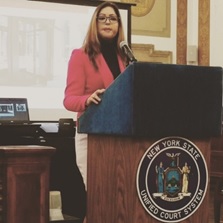 Monica Singh is humanitarian, social activist and the UN Women’s Global Youth Ambassador. She is a spokesperson at the United Nations, representing the “face of Resilience” from India.
Monica Singh is humanitarian, social activist and the UN Women’s Global Youth Ambassador. She is a spokesperson at the United Nations, representing the “face of Resilience” from India.
As an acid attack survivor, Monica used education as her means of escape and empowerment. She travelled to New York to live alone and study fashion at her dream school, Parsons. She then founded and is President of the Mahendra Singh Foundation.
The Mahendra Singh Foundation offers support, guidance and helps women to overcome obstacles and achieve their potential. The Foundation provides scholarships to girls for education, as well as financial support. The aim is to help survivors become self-sufficient to the best of their abilities, striving to enable women to learn the skills required to achieving empowerment through financial independence.
In her activism Monica draws on her marketing degree as well as social media, to spread her message and raise awareness about “honour” crimes and gender based violence, all over the world.
Monica recently co-produced a graphic novel tittled ‘Priya’s Mirror, funded by the World Bank, which focuses on violence against women. The superhero of the novel convinces acid attack survivors that there is more to them than their scars, and that there is no need to hide.
Winner of Special Recognition: Driving Change: Sarian Karim Kamara
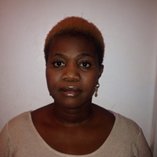
Sarian Karim Kamara is a leading UK and international campaigner against Female Genital Mutilation (FGM) and is herself a Survivor. Sarian founded and is Director of the Sierra Leone based campaigning organisation ‘Keep the drums, lose the knife’ which aims to bring an end to FGM in the country. She is a Fellow of the Orchid Project and in July 2016, Sarian received a scholarship from them to attend the Tostan Training Centre in Senegal.
Within the UK, Sarian works as a community advocate for two key anti-FGM groups; Forward UK and Manor Gardens Health Advocacy Project. Sarian runs fortnightly workshops in South East London engaging communities and empowering them to challenge FGM. She also supports affected women and young people to access specialist services. Sarian shares good practice and resources and ensures campaigning for national policies to protect young women and girls from FGM, are rooted in what works at the community level.
For many years Sarian has worked closely with the Metropolitan Police, including taking part in Operation Limelight at airports with flights to and from countries where FGM is practised. Sarian has also had a profound effect on educating the health sector about FGM. She is regularly invited to speak to groups of medical students at UCL and trains Obstetrics and Gynaecology doctors, enabling them to develop the skills and confidence to talk to their patients about FGM, to assess their medical needs, assess risk and protect girls.
Winner of Special Recognition: Longstanding Dedication – Pal Singh
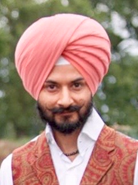
Pal Singh is a Detective Sergeant within the Metropolitan Police Service. He has utilised his Punjabi cultural upbringing and his fieldwork on sexual segregation to understand the patriarchal mind-set of “honour” codes, in order to assist criminal investigations. During his career, Pal has investigated several high-profile and complex “honour” killings including the murders of Heshu Yones, Banaz Mahmod and Surjit Athwal and has pioneered ground-breaking “honour” based violence cases. Last year he secured the first prosecution for domestic servitude between a husband and wife, in the case of a woman brought from Pakistan by her British husband and treated like a slave. Last year he also secured the first FGM protection order for the Metropolitan Police.
Following decades of work in this field, Pal is now recognised as a subject matter expert in the policing of “honour based violence. Pal acts as a strategic and tactical advisor in national investigations, assisting other police forces, delivering training and providing guidance. Pal was a member of the Expert Reference Group for Her Majesty’s Inspectorate of Constabulary into “honour” based violence, forced marriage and FGM policing.
Pal champions many community events to tackle “honour” based violence. He has featured prominently in many academic publications, media articles, televised broadcasts and the documentary film Banaz: A Love Story. Pal’s commitment to safeguarding those at risk and securing justice is praised by Survivors of “honour” based violence and NGO’s.
Winner True Honour Award 2017 – Gabriella Gillespie

Gabriella Gillespie is a true inspiration. As a Survivor of child marriage, she courageously speaks out, campaigns and writes to prevent others from the painful experiences that she has suffered.
In 1977, Gabriella and her two sisters believed that they were travelling from their home in Wales, to Yemen on a family holiday. But when they arrived, they were sold by their own father as child brides. Gabriella was barely 13 years old and soon after the marriage, she became a mother. Gabriella had to endure many years of physical and psychological abuse from her husband, father and in-laws. She also suffered the pain of losing her sister, who in the face of marriage to a man in his 60’s, committed suicide on her wedding day.
Many years later, by which time Gabriella had five children, and her own daughter was facing the very real risk of being sold into marriage, Gabriella escaped with them and went into hiding. Finally, in 1992, after living in fear of being found, Gabriella was helped to return home to the UK, with her children, by the British Embassy. The challenges did not end, not only because of the sustained psychological trauma her family had endured, but also because Gabriella’s children experienced racism and she had to deal with poor mental health services that were unable to meet the needs of one of her children, who’d received a brain injury in an accident.
In spite of the many challenges, Gabriella is determined to do everything she can to end child marriage. She is a dedicated and knowledgeable activist. As she puts it she “lends an ear to girls and women who contact her if they need someone to talk to, or need advice on where to go for help.” She is a powerful speaker at events, campaigns through social media and the press and volunteers for local charities.
The judges selected Gabriella Gillespie as the winner of the True Honour Awards 2017 in recognition of her immense courage and dedication fighting “honour” based violence and ensuring the safety of others.




